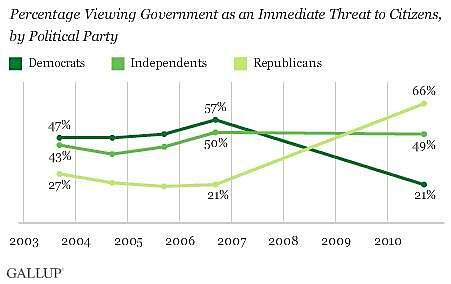There’s been considerable attention to the news that the IRS only managed to grab 2.4 percent of Google’s overseas income. As this Bloomberg article indicates, many statists act as if this is a scandal (including a morally bankrupt quote from a Baruch College professor who thinks a company’s lawful efforts to lower its tax liability is “evil” and akin to robbing citizens).
Google Inc. cut its taxes by $3.1 billion in the last three years using a technique that moves most of its foreign profits through Ireland and the Netherlands to Bermuda. Google’s income shifting — involving strategies known to lawyers as the “Double Irish” and the “Dutch Sandwich” — helped reduce its overseas tax rate to 2.4 percent, the lowest of the top five U.S. technology companies by market capitalization, according to regulatory filings in six countries. …Google, the owner of the world’s most popular search engine, uses a strategy that…takes advantage of Irish tax law to legally shuttle profits into and out of subsidiaries there, largely escaping the country’s 12.5 percent income tax. The earnings wind up in island havens that levy no corporate income taxes at all. Companies that use the Double Irish arrangement avoid taxes at home and abroad as the U.S. government struggles to close a projected $1.4 trillion budget gap and European Union countries face a collective projected deficit of 868 billion euros. …U.S. Representative Dave Camp of Michigan, the ranking Republican on the House Ways and Means Committee, and other politicians say the 35 percent U.S. statutory rate is too high relative to foreign countries. …Google is “flying a banner of doing no evil, and then they’re perpetrating evil under our noses,” said Abraham J. Briloff, a professor emeritus of accounting at Baruch College in New York who has examined Google’s tax disclosures. “Who is it that paid for the underlying concept on which they built these billions of dollars of revenues?” Briloff said. “It was paid for by the United States citizenry.”
Congressman Dave Camp, the ranking Republican (and presumably soon-to-be Chairman) of the House tax-writing committee sort of understands the problem. The article mentions that he wants to investigate whether America’s corportate tax rate is too high. The answer is yes, of course, as explained in this video, but the bigger issue is that the IRS should not be taxing economic activity that occurs outside U.S. borders. This is a matter of sovereignty and good tax policy. From a sovereignty persepective, if income is earned in Ireland, the Irish government should decide how and when that income is taxed. The same is true for income in Bermuda and the Netherlands.
From a tax policy perspective, the right approach is “territorial” taxation, which is the common-sense notion of only taxing activity inside national borders. It’s no coincidence that all pro-growth tax reform plans, such as the flat tax and national sales tax, use this approach. Unfortunately, America is one of the world’s few nations to utilize the opposite approach of “worldwide” taxation, which means that U.S. companies face the competitive disadvantage of having two nations tax the same income. Fortunately, the damaging impact of worldwide taxation is mitigated by a policy known as deferral, which allows multinationals to postpone the second layer of tax.
Perversely, the Obama Administration wants to undermine deferral, thus putting American multinationals at an even greater disadvantage when competing in global markets. As this video explains, that would be a major step in the wrong direction. Instead, policy makers should junk America’s misguided worldwide system and replace it with territorial taxation.
